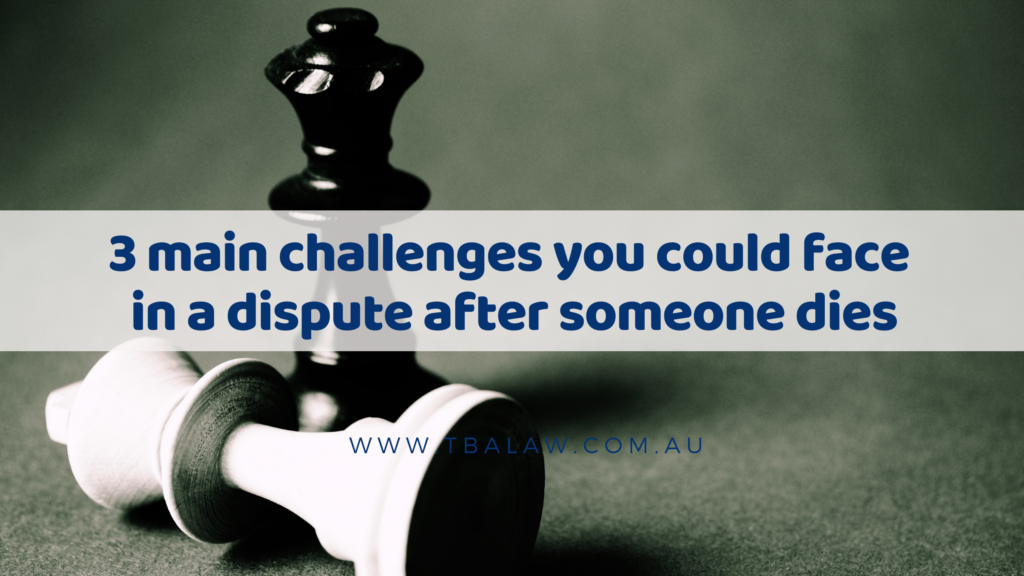3 main challenges you could face, in a dispute after someone dies
Facing a dispute over the Will when someone dies is what many families dread. Here are 3 of the most common challenges that families face in a dispute after someone dies, along with some ways to avoid or deal with those challenges.
Holding the family together
While everyone is grieving, anger can flare when someone in the family does not think the Will is fair. This anger can lead too quickly to the family thinking a challenge as unforgivable.
Everyone deals with grief differently.

One of the best ways to try to hold the family together, despite someone being upset by the Will, is to slow down.
After someone dies, there is plenty of time to allow emotions calm down and have some conversations.
It’s better to stay open to listening, rather than taking a firm position in the early months after someone has died. Taking a firm position can create a fight, which will turn into litigation, and a lot of legal fees.
If you want to hold the family together, litigation won’t achieve that.
So you need to be aiming for resolving the dispute in an alternative way than litigation.
Paying legal fees upfront
For the estate, if there is no liquid money available, and it’s all in real estate, then the executors are likely to need to pay legal fees until they can be reimbursed.
For the person wanting to dispute the contents of the Will, they will need to pay some of their legal fees up front too. Rarely are all legal fees payable at the end.
So there is the challenge of being prepared to pay some legal fees, whether or not there is an alternative dispute resolution path, or litigation.
Keeping everyone happy
Keeping everyone happy is a challenge that you may need to accept cannot be done.
There are going to be upset family members. The situation may never sit well with everyone. But sometimes, at least having the change to be heard, and have their say, is something that provides some satisfaction.
If a dispute ends up in litigation, not everyone will feel heard. Some stories will be told, many stories and feelings will be dismissed.
Whereas, using an alternative dispute resolution path may give everyone a more level playing field, and a better chance of feeling heard.
Collaborative practice is a method of alternative dispute resolution which keeps parties and their lawyers out of court. It occurs over multiple joint meetings of a few hours each, so there are enough breaks in between and chances to debrief and consider what was said. It is the best chance a family has of surviving a dispute about a Will.





Leave A Comment